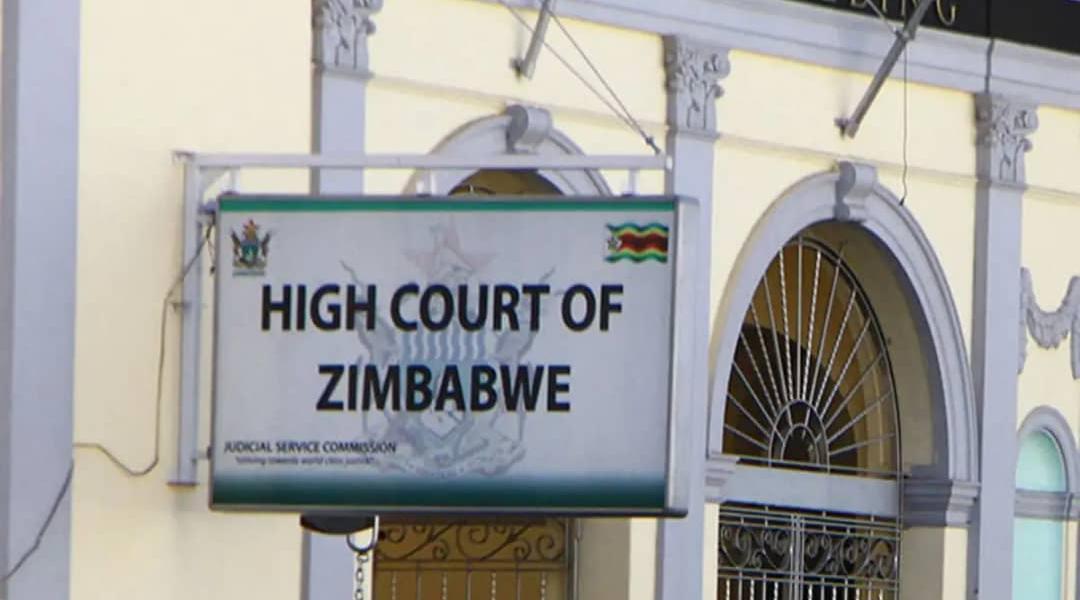HARARE – The just announced forex trading system will result in one of two predictable outcomes: an increase in the price of goods in US dollars or outright shortages if the authorities attempt to intervene.
The government requires foreign currency to meet its obligations. It has alternated a variety of unscrupulous tactics to acquire this foreign currency. Initially, it insisted that the local currency was at par in value with the United States, robbing exporters of their foreign currency at a rate of 1:1. It then purported to liberalise but again the rates continued to trail parallel markets. Earlier this year, the authorities imposed a fixed exchange rate of Z$25 against the US dollar, allowing them to rob tobacco farmers of their earnings.
All these tactics are simply expropriation by another name and is a direct result of government failing to understand that money is private property. It would be deemed outrageous if government attempted to dictate the price at which a pair of earrings should be sold but for some reason arbitrary state control over foreign exchange is treated with indifference as something of a benign necessity. If person A has US$1 and person B wishes to take possession of that dollar and is happy to exchange it for Z$100, that private transaction has nothing to do with state.
The latest intervention, which will require goods and services to be priced in both USD and Zimdollars using rates determined by the auction system, is doomed to suffer a similar fate as the other half-hearted measures which all share the common objective of resisting market forces. The conditions in the auction system exclude small businesses which have no capacity to bid for the minimum US$50,000.
Further, the priority list will continue to be abused by those who enjoy proximity to power at the expense of legitimate enterprise. This will be compounded by the averaging of bids which will inevitably result in the auction rate being lower than the parallel market. The businesses that are unable to access foreign currency via these auctions will turn to the black market; indeed, the RBZ makes to no attempt to explain where it expects these businesses to get foreign currency.
This is where the problem arises in light of the requirement to price goods in both currencies.
Let us assume a business purchases foreign currency on the parallel market at a rate of US$1:Z$100 and stocks up on goods. Ordinarily they would just convert the cost in US dollars at the prevailing parallel market rate to set the price in Zimdollars. A US$10 product would be priced at Z$1,000. However, this will now be illegal as the regulations require the peg to be based on the auction rate despite that fact most businesses will not have secured their foreign currency from the auction system.
The problem arises from the inevitable variance between the parallel market rates and the RBZ rate. As an example, if the RBZ rate was at Z$85, the business would have to price their US$10 product at Z$850, which is below the cost and margins. No business will do this, they would prefer to shut shop.
The solution is simple enough; businesses will inflate the US dollar cost to cover that variance. Instead of pricing the goods at US$10, which would force them into a loss-making position at Z$850, they will increase the US dollar price by dividing the real cost in Zimdollars by RBZ rate. In this case that would be:
1000/85 = US$11.76
If the RBZ rate is at Z$50, the results will be more dramatic.
1000/50 = US$20
The result will be a complete evaporation of foreign currency transactions and an explosion on the parallel market as people convert before purchase.
It is farcical and the RBZ is well aware of these implications.
If the authorities attempt to clampdown on this reasonable response to an unreasonable policy, there will be widespread shortages as businesses would prefer to hold onto their capital that lose it on each transaction.
How the RBZ’s latest forex trading system is supposed to work, if it works
The Reserve Bank of Zimbabwe has announced a new forex auction system, saying it will bring “transparency and efficiency” to currency trade.
The auction system is the latest in a series of attempts by central bank over the past two years to settle on a working forex trading system.
An auction platform is not new; Zimbabwe introduced a Managed Foreign Exchange Auction System in January 2004. It was abandoned within a year, after the market realised RBZ was keen to control the rate, which resulted in losses for exporters. At the time, sellers complained that they could not withdraw their offers from the auction even if unhappy with bids.
Will the new auction system be any different?
Here is what we know so far about the new platform:
Is the rate still fixed?
The system replaces the fixed rate of 25:1, which was introduced as a temporary measure in March and has been criticised by exporters, including miners. From June 23, the rate will no longer be fixed.
How will this new system work?
According to RBZ, there will be an auction every Tuesday. A company or individual who wants forex, makes a bid for hard currency by 9AM on the day. They can make only one bid per day. If they bid twice, all their bids are rejected.
The winning bidder gets the money sent to their foreign currency bank account once the Zimdollar equivalent has been paid.
Importers on the priority list – essential supplies – get to be first in line for allotment.
At the end of each auction day, an average of the highest and lowest bids allotted is worked out. This becomes the prevailing exchange rate of the day. At close of each sale day, a report will be published on how much was auctioned, the bids on offer, and the weighted average rate.
The bidding platform uses the Reuters Foreign Currency Auction System, linked to the export payments and exchange control platforms. The central banks of Ghana and Uganda started using the Reuters Eikon auction app in 2016.
How much can one bid for?
To bid, you must have deep pockets. You cannot bid for less than US$50 000 per auction. This means the auction system is really for major players, shutting out individuals that may also need forex.
One can bid for a maximum of US$500 000 per auction. A factor to watch will be how much of the allotted bids is actually available. A bidder also needs to show an import invoice.
Does this happen in other countries?
Angola, Egypt and Ghana are among economies that use variations of the auction system. Angola, in 2018, stopped controlling the exchange rate and started auctions. This allowed the Kwanza to depreciate. The auctions began once weekly, then three times a week. They are now held daily.
Ghana also has an auction system. However, what is notable is transparency, which RBZ woefully lacks. The Bank of Ghana has already released a calendar telling the market how much it intends to sell in its forward auctions for 2020; a total of US$715 million is planned for its auctions this year.
This contrasts sharply with RBZ, where key data is released either late, or hardly at all.
What about prices?
Shops are now required to display prices of goods and services in both USD and in Zimdollars at the ruling auction rate for the week.
If you think you’ve heard this before, you’re right. This is a throwback to September 2008, when shops were licensed to sell in foreign currency alongside the Zimdollar.
Then, just as now, inflation was raging out of control. RBZ introduced Foreign Exchange Licenced Warehouses and Retail Shops (Foliwars), Foreign Exchange Licenced Oil Companies (Felocs) and Foreign Exchange Licenced Outlets for Petrol and Diesel (Felopads).
These big, clumsy names simply described shops allowed to sell in forex and Zimbabwe dollars. However, shops quickly stopped accepting local dollars, preferring USD, as is likely to happen now.
(Reporting by Kukurigo and NewzWire)
















